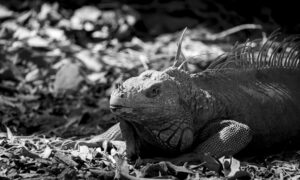In biology, evolution is the process in which the genetic structure of an organism changes over time as a result of environmental factors. In evolutionary biology, organisms undergo changes as they adapt to changing environmental conditions, and new species emerge over time.
Natural selection, mutation, migration, genetic drift, and environmental factors all contribute to evolution. An organism’s genetic makeup changes due to all of these mechanisms, ultimately leading to its evolution.
Natural selection increases an organism’s chances of surviving and reproducing when certain traits are more favorable to environmental factors. In this way, carriers of these traits reproduce more frequently, causing the population to increase and become more common over several generations.
Mutations are random changes in the DNA sequence. These changes in genetic material lead to the emergence of various traits, some of which are critical for adaptation. While mutations are generally considered harmful, beneficial changes can sometimes occur.
Migration results in the exchange of genetic material between different populations. Migration between different populations of a species can cause differences among those populations.
Genetic drift causes certain genes to spread or be lost entirely in a population due to random effects. This mechanism becomes more significant in smaller populations.
Environmental factors play a vital role in the evolution of organisms. The environmental conditions in which a population lives determine which characteristics of an organism are favorable. For example, heat-tolerant organisms have a better chance of surviving and reproducing in high-temperature regions.
In short, evolution is a complex process that is the result of a combination of multiple mechanisms. Mechanisms such as natural selection, mutation, migration, genetic drift, and environmental factors all play significant roles in the evolutionary process. These factors lead to changes in the genetic architecture of organisms. Over time, these changes add up, leading to the emergence of new species.
The workings of evolution are also supported by the theory of population genetics. Population genetics is the branch of genetics that studies changes in the genetic makeup of populations and the evolutionary consequences of those changes. Population genetics is used to measure changes in the genetic makeup of a species and determine how quickly evolution is occurring.
In spite of this, the mechanisms of evolution remain a matter of debate, with a number of scientists holding divergent views. There are those who believe that evolution is purely accidental, while others believe that natural selection drives evolution in a particular direction.
There is no evidence that the theory of evolution has been invalidated by discussions about how evolution works. In order to better understand the history of biological evolution, it is useful to have a scientific basis for the theory of evolution.
Ultimately, evolution is a complex process that involves a variety of mechanisms. A variety of mechanisms, such as natural selection, mutation, migration, genetic drift, and environmental factors, contribute to changes in genomes of organisms, ultimately resulting in the evolution of species. Evolution can also be explained and measured using population genetics theory.










